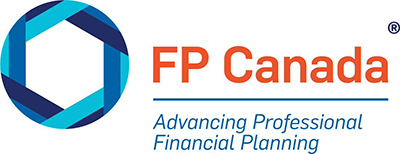Updates allow for greater recognition of both international experience and extensive years of service within the financial services arena.
TORONTO, July 8, 2022 /CNW/ - FP Canada has announced two changes to its Certified Financial Planner® certification and Qualified Associate Financial planner™ certification requirements. The changes pertain to qualifying work experience requirements and the necessity of post-secondary education for candidates with experience in financial services.
These changes are part of FP Canada's ongoing efforts to minimize barriers to certification and increase diversity among new planners entering the profession. They also align with recent updates to legislation regarding Canadian experience requirements for regulated professions in Ontario.
One change saw FP Canada revise its policies relating to relevant work experience to recognize international experience as equivalent to Canadian work experience for those seeking CFP® certification and QAFP™ certification. Candidates may now apply for certification irrespective of where their work experience was obtained, so long as it meets the definition of qualifying work experience.
By recognizing that work experienced gained outside of Canada is equivalent to Canadian experience, FP Canada will encourage the development of an increasingly diverse financial planning profession that better reflects the country's population. This goal is aligned with IMAGINE 2030, FP Canada's vision for financial wellness and access to financial planning services for all Canadians.
Another amendment allows individuals without a post-secondary degree to access and qualify for CFP certification under certain circumstances. Namely, they must either be a QAFP professional in good standing for a minimum of five years and successfully complete the QAFP Certification Bridge Path to CFP Certification, or they must have 10 years of qualifying work experience and meet the standard requirements for CFP certification.
This change to educational requirements recognizes professional level experience in the financial services sector, providing those who have developed the professional skills needed for a career in financial planning with a new opportunity to obtain CFP certification.
"The financial planning profession is constantly evolving, and certification requirements must evolve with it," says Tashia Batstone, President and CEO of FP Canada. "The changes we've made will provide a smoother path for financial planners who have already clearly demonstrated their knowledge and skills – whether they've done so here or abroad."
Recent changes to requirements for CFP certification are detailed on the FP Canada website.
Certified Financial Planner® certification is the most widely recognized financial planning designation in Canada and throughout the world and is considered the standard for the financial planning profession. CFP® professionals have demonstrated the knowledge, skills, experience and ethics to provide holistic financial planning strategies and solutions at the highest level of complexity required of the profession, and work with their clients to build a financial plan so that they can Live Life Confidently™.
A national certification and professional oversight body working in the public interest, FP Canada is dedicated to championing better financial wellness for all Canadians by leading the advancement of professional financial planning in Canada. There are about 17,000 Certified Financial Planner professionals and about 2,000 Qualified Associate Financial Planner professionals (as of June 30, 2022), who meet FP Canada's rigorous professional and ethical standards. Visit the FP Canada website for more information.
SOURCE FP Canada

For media inquiries, please contact: Megan Harman, FP Canada, [email protected]

Share this article